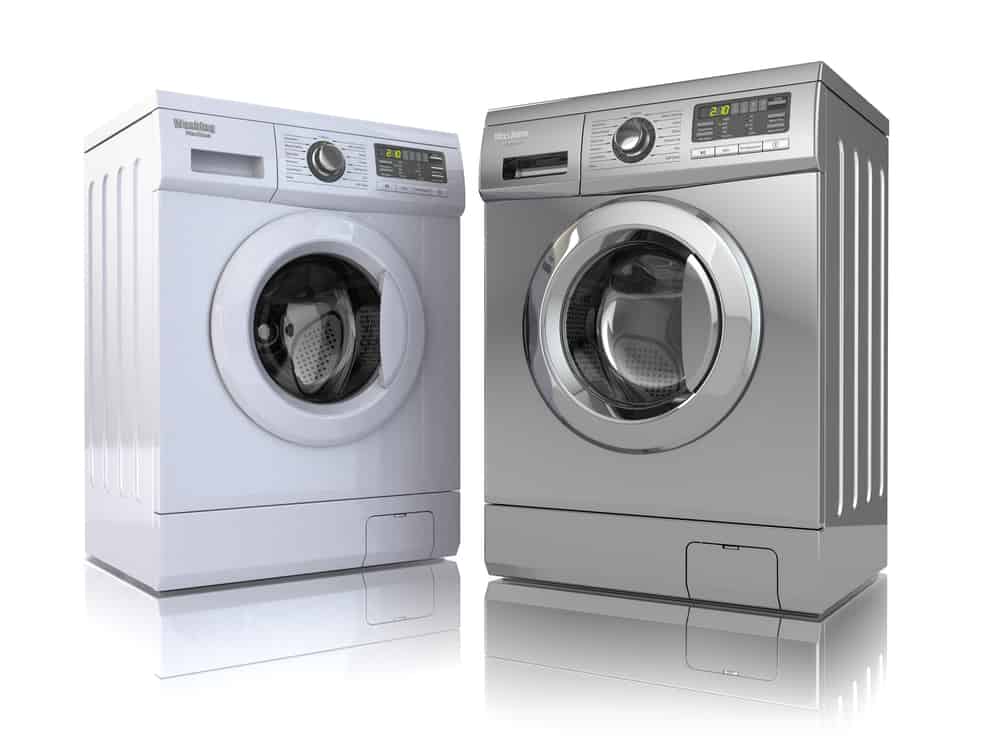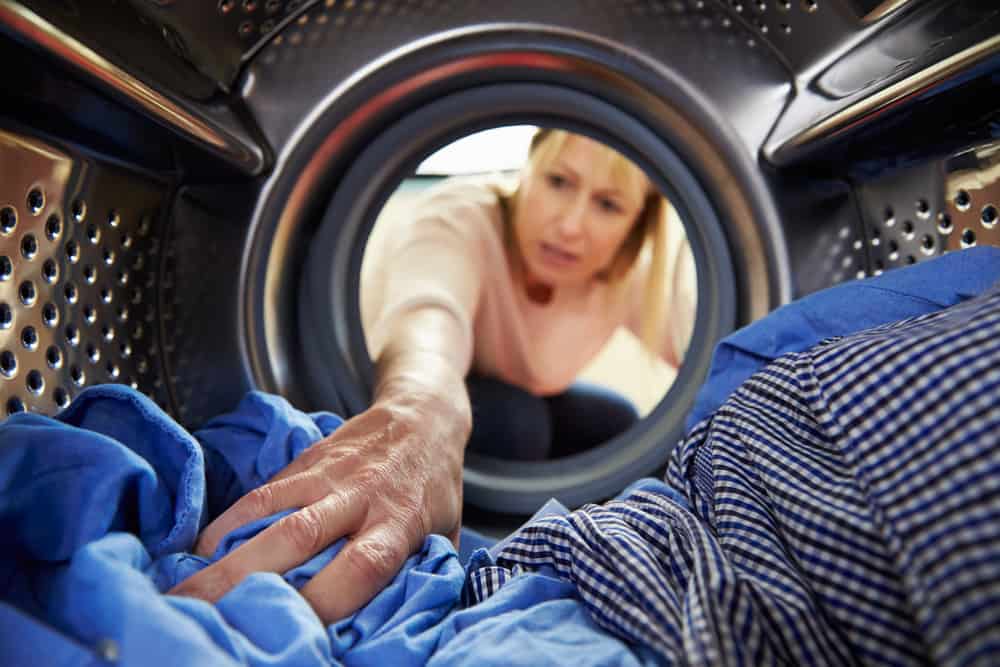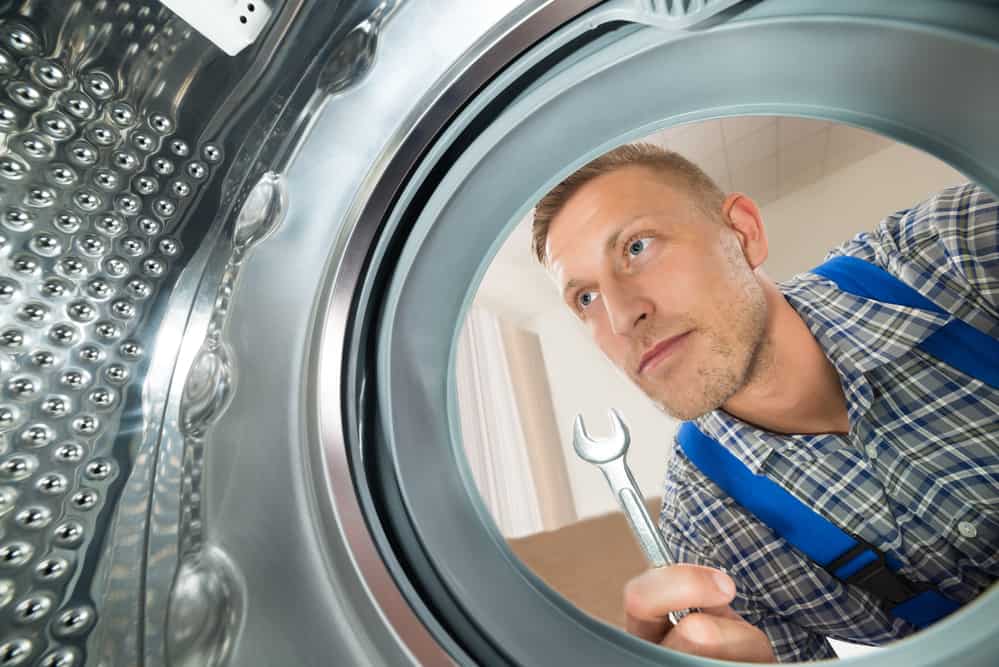
Clothes drying alone accounts for 7% of household electricity use in the US, and Americans spend up to $9 billion every year drying their clothes.
Clothes dryer energy efficiency is still lagging far behind other appliances, so replacing your dryer can affect household expenses for years to come. Is gas or an electric dryer better for you?
Read on to find out.
Gas vs. Electric Dryer
For most people, an electric dryer is probably the simpler, more affordable, more reliable option.
However, if your house is already piped for natural gas, gas dryers are more efficient than electric, which means they dry clothes more quickly, and have lower operating costs over time.
Differences between gas and electric dryers
Let’s face it, most of the time you choose what type of dryer to get based on how your house is already set up.
It seldom makes sense to change your wiring or add a new gas line to change the type of dryer you have.
But if you are buying your first dryer, or renovating a house, here are the key considerations when choosing a gas or electric dryer:
Purchase price of the dryer: Electric
Generally speaking, gas dryers are more expensive than electric, averaging around $100 more to buy.
Speed in drying clothes: Gas
Gas combusts and creates heat more efficiently than electricity, so gas dryers dry clothes more quickly.
Operating and maintenance costs over time: Depends
While the cost of utilities varies widely across the country, in most places gas dryers are cheaper to operate on an ongoing basis, primarily because they dry more efficiently.
However, gas dryers have a slightly shorter average lifespan (at 13 vs. 14 years for electric) and are more expensive to service and repair.
You may want to look at your utility rates and estimate operating costs specific to your utility rates and your dryer use habits to make the best decision.
Installation cost: Electric
It can be expensive and time-consuming to add new utilities or relocate appliances.
If you want to install a new outlet for an electric dryer, a professional will usually charge between $150 -$300, and many modern electric dryers do not need to be vented to the outside.
Gas dryers always need to be vented outside, and it can cost thousands of dollars to add a gas line to a house that doesn’t already have one.
Installing a gas dryer is more affordable if you already have gas heating or a gas stove, but for most people, it is not worth adding a gas supply simply for the sake of a single appliance.
Environmental impact: Depends
As a general rule, gas dryers are considered more environment-friendly because they require less energy to operate.
However, that is only part of the picture. To determine which appliance is better for the environment, it’s important to know how your electricity is generated.
If you have solar panels on your home, or your electricity comes from a wind farm, then an electric dryer is the greener choice.
If your utility company generates electricity by burning coal or fossil fuels, then a gas dryer may be the more environmentally-friendly choice.
While natural gas is one of the cleaner, more efficient fossil fuels, it is often transported across the country through gas pipelines that have a negative impact, and a lot of natural gas is mined through a process called “fracking,” which has a negative environmental impact too.
The better choice for the environment really depends on where you are and how your utility companies operate.
>>How about Gas and Electric Stove? Check out our detailed guide here!<<
How can you tell what kind of dryer you have?

If you have an electric dryer, your dryer will be plugged into a large, industrial-looking 240-volt outlet with a big 3- or 4-prong plug.
If you can’t find the plug, check your electrical panel or fuse box for a big, double-slot circuit breaker rated for 30 amps or higher.
If you have a gas dryer, there will be a gas supply line connected to your dryer, with a shut-off valve.
If you can’t see how your dryer is connected, search online for the manufacturer and model number, and find the information on the manufacturer’s website.
Can you convert a dryer from gas to electric or vice versa?
No, you can’t convert dryers from one type to another, because the heating systems are different.
However, people who live in rural areas sometimes convert natural gas dryers to heat with propane tanks where gas supply lines aren’t available.
Is it Worth Converting Your Utility Supply for a Different Dryer?

If your home is new construction, or a complete gutting and remodel, and you are already planning a gas supply line for a stove or heating system, then it’s not much more expensive to add capacity for a gas clothes dryer.
Over time, the energy savings make it a good investment. However, adding a new gas supply line to an existing home can be extremely expensive, and usually not worth it for the sake of a clothes dryer alone.
On the other hand, adding a new 240-volt outlet for an electric dryer is a fairly inexpensive task that a professional can do in less than a few hours.
Keep in mind that most clothes dryers, no matter what type, also need to be vented to the outside, which can make installation of a new dryer more difficult, and limit options for where a dryer can be placed.
If you live in an apartment or condo where you can’t add an outside vent, you may want to look for an electric “ventless” dryer that doesn’t need exterior venting.
For most people, their choice of the new dryer is determined by their home’s existing utility supplies and local rates, as well as what type of dryer suits them best.
When we were shopping for a new dryer, we decided to go with electric, and got a great deal on this model with a matching washer:
Tap to view on Amazon
Related Questions
Are gas dryers more dangerous than electric?
Improperly vented or maintained gas dryers pose the risk of carbon monoxide leaking into the air, which can cause nausea, dizziness, or even death.
On the other hand, electric dryers that are improperly installed or maintained pose a risk of an electrical fire.
All clothes dryers should be installed, used, and correctly maintained, to minimize risk and danger.
But that is true of all household appliances, and gas and electric dryers are statistically safer than gas and electric stoves.
Is an electric dryer more expensive to run than a gas dryer?
Yes, an electric dryer is more expensive to run than a gas dryer over the course of a year or two of use.
The actual costs depend on your local utility rates, but as a rule, a gas dryer has lower energy costs than electric.


